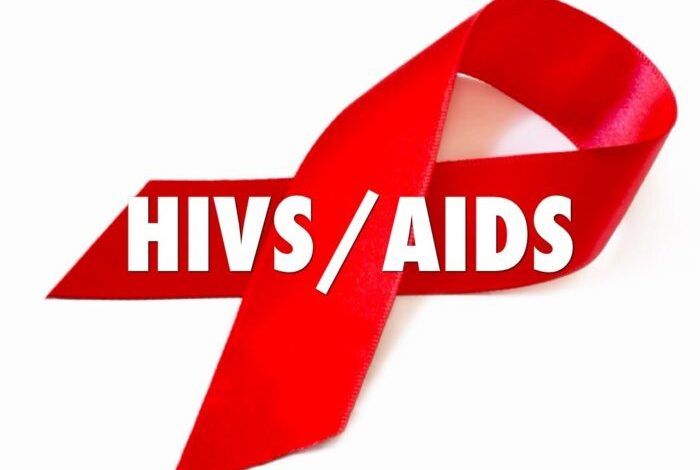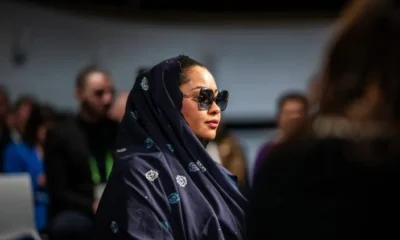FOREIGN
WHO Cautions Nigeria, Others at Risk of HIV Treatment Shortage Due to U.S. Aid Pause

The World Health Organization (WHO) on Monday identified Nigeria as one of eight countries at risk of running out of HIV treatment supplies in the near future.
This alarming development is attributed to disruptions caused by the Trump administration’s decision to pause U.S. foreign aid, which has significantly impacted the availability of HIV treatments in affected nations.
According to WHO Director-General Tedros Ghebreyesus, Nigeria, along with Haiti, Kenya, Lesotho, South Sudan, Burkina Faso, Mali, and Ukraine, could face a severe shortage of HIV medications in the coming months. The WHO has warned that these disruptions could undo over two decades of progress in the global fight against HIV, potentially leading to more than 10 million additional HIV cases and 3 million related deaths.
“The disruptions to HIV programs could undo 20 years of progress,” Ghebreyesus stated during a press conference, emphasizing the potential long-term impact of the U.S. aid pause. The decision, which was made shortly after President Donald Trump took office in January, has also affected global efforts to combat polio, malaria, and tuberculosis.
In addition to HIV treatment disruptions, the WHO noted that the U.S. funding freeze has put the Global Measles and Rubella Laboratory Network at risk of closure. With over 700 sites worldwide, the network is facing an imminent shutdown, particularly as measles is making a resurgence in the United States.
Ghebreyesus called on the U.S. to ensure that if it withdraws direct funding, it does so in an orderly and humane manner, allowing affected countries to secure alternative sources of funding. The WHO also highlighted the strain on its own operations, revealing that the U.S. withdrawal from the organization has forced it to freeze hiring and implement budget cuts. The organization plans to reduce its funding target for emergency operations from $1.2 billion to $872 million for the 2026-2027 budget period.
In a separate statement, the WHO warned that funding shortages could lead to the closure of 80% of essential health care services in Afghanistan, where 167 health facilities have already shut down due to financial constraints. Without urgent intervention, over 220 more facilities could close by June.
The situation underscores the far-reaching impact of the U.S. foreign aid pause, with many global health initiatives now struggling to meet critical needs.
TV360
Discover more from Asiwaju Media
Subscribe to get the latest posts sent to your email.
-

 ENTERTAINMENT6 days ago
ENTERTAINMENT6 days agoFrank Edoho Confirms Split From Second Wife Sandra Onyenuchenuya
-

 NEWS6 days ago
NEWS6 days agoMan Heartbroken As Girlfriend Of 2 Years Denies Him During Interview With YouTuber Asherkine At UNN
-

 ENTERTAINMENT6 days ago
ENTERTAINMENT6 days agoNollywood Mourns As Actor And Producer Kayode Peters Reportedly Passes Away In Canada
-

 POLITICS5 days ago
POLITICS5 days agoChristian Asaga Nwali Bags Award for Contributions to Community Development
-

 INSIDE NYSC7 days ago
INSIDE NYSC7 days agoNYSC DG Calls For Unity and National Development During Lagos Camp Visit
-

 SPORTS7 days ago
SPORTS7 days agoAbakaliki FC Faces Kwara United Today in Federation Cup Final
-

 ENTERTAINMENT6 days ago
ENTERTAINMENT6 days agoUNN Student Becky Breaks Silence, Denies Claims Of Boyfriend Denial After Viral Outing With Asherkine
-

 NEWS7 days ago
NEWS7 days agoPhilanthropist Christian Asaga Nwali Commissions Bungalow for Elderly Widow in Ikwo
-

 POLITICS6 days ago
POLITICS6 days agoSenator George Akume Resigns as Secretary to the Government of the Federation
-

 SPORTS6 days ago
SPORTS6 days agoAfonja Warriors Spice Up the Final, Leave Rice Boys with an Empty Bowl
-

 ENTERTAINMENT1 day ago
ENTERTAINMENT1 day agoShocking! Davido Accused of Secret Dealings That Could Ruin His Career
-

 CAMPUS REPORTS5 days ago
CAMPUS REPORTS5 days agoKaduna, SMEDAN Launch ₦1 Billion Fund to Power Small Business Growth




























